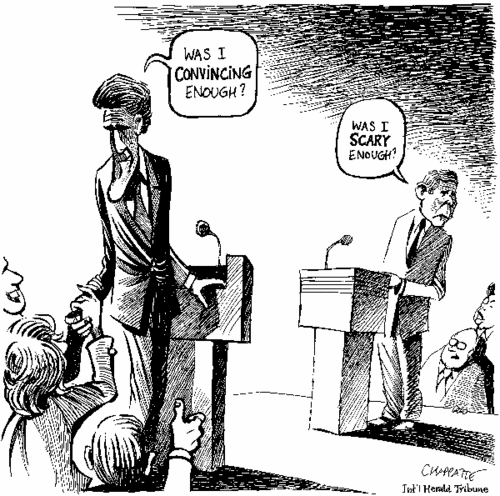Is there a link between capitalism and Christianity, a god of the markets? Some experts think so. There is growing evidence that Christianity gave birth to the global economy.
Max Weber, the German sociologist, developed the idea that Protestantism is a pillar of the profit system. He introduced the idea that piety and profits can live together. Weber outlined his theory in 1905 with “The Protestant Ethic and the Spirit of Capitalism”.
Calvinism and the Protestant sects, Weber argued, depend on outward signs of salvation. The main ones were diligence, sobriety and success. Thrift was also a peculiarly Protestant virtue. Combining these qualities produced capitalism.
Methodism's founder, John Wesley, stated: "Religion must necessarily produce both industry and frugality, and these cannot but produce riches.”
British Economist Richard H. Tawney further developed Weber's ideas. He wrote the well-known book, “Religion and the Rise of Capitalism”. Weber and Tawney spawned a century of analysis and debate. Indeed Weber’s book has achieved almost sacred status among sociologists.
The argument has its flaws, however. They are possibly fatal ones. As historian Hugh Trevor-Roper notes, “The idea that large-scale capitalism was ideologically impossible before the Reformation is exploded by the simple fact that it existed.”
Is that the end of the story? No. Many feel Weber was on to the right idea, linking the rise of capitalism to religion. He just had the wrong explanation. Or at least an incomplete one.
More recently, noted sociologist Rodney Stark offered a more compelling view. The title of his book says it all: “The Victory of Reason, How Christianity Led to Freedom, Capitalism and Western Success.” According to Stark:
“Christianity created Western Civilization. Had the followers of Jesus remained an obscure Jewish sect, most of you would not have learned to read and the rest of you would be reading from hand-copied scrolls. Without a theology committed to reason, progress, and moral equality, today the entire world would be about where non-European societies were in, say, 1800: A world with many astrologers and alchemists but no scientists. A world of despots, lacking universities, banks, factories, eyeglasses, chimneys, and pianos. A world where most infants do not live to the age of five and many women die in childbirth. . . . The modern world arose only in Christian societies. Not in Islam. Not in Asia. Not in a "secular" society--there having been none.”
A more fundamental proposition exists, however. It is provided by the lead character in my book, link. The eponymous Alex Webster is a Harvard MBA and PhD in religion from Columbia University. He suggests that the first capitalist may well have been Yahweh Himself.
According to Webster, Old and New Testament stories show how Yahweh grew from an emotional entrepreneur to a mature manager. Yahweh, in Genesis, was a young entrepreneur, like Steve Jobs at Apple in the early years. He was a doer, a creator, making the cosmos in seven days and crafting humans in his image. When he was unhappy with his creation he would destroy it and start again. A typical entrepreneur.
By the end of the New Testament, God has delegated authority to his Son to look after the affairs of humans.
Today, Yahweh is like a Chairman of the Board, like Bill Gates. He’s changed from a temperamental, even eccentric, entrepreneur to an avuncular senior executive. He’s focused on love and compassion. He occasionally dabbles in sports events and beauty contests, helping to choose the winner.
And why not? Yahweh’s brands dominate world religions. About 32 percent of the world’s population is Christian.
Indeed, market share rules. Yahweh’s legacy and mythology may well be as the father of capitalism, the archetypal entrepreneur.
Max Weber, the German sociologist, developed the idea that Protestantism is a pillar of the profit system. He introduced the idea that piety and profits can live together. Weber outlined his theory in 1905 with “The Protestant Ethic and the Spirit of Capitalism”.
Calvinism and the Protestant sects, Weber argued, depend on outward signs of salvation. The main ones were diligence, sobriety and success. Thrift was also a peculiarly Protestant virtue. Combining these qualities produced capitalism.
Methodism's founder, John Wesley, stated: "Religion must necessarily produce both industry and frugality, and these cannot but produce riches.”
British Economist Richard H. Tawney further developed Weber's ideas. He wrote the well-known book, “Religion and the Rise of Capitalism”. Weber and Tawney spawned a century of analysis and debate. Indeed Weber’s book has achieved almost sacred status among sociologists.
The argument has its flaws, however. They are possibly fatal ones. As historian Hugh Trevor-Roper notes, “The idea that large-scale capitalism was ideologically impossible before the Reformation is exploded by the simple fact that it existed.”
Is that the end of the story? No. Many feel Weber was on to the right idea, linking the rise of capitalism to religion. He just had the wrong explanation. Or at least an incomplete one.
More recently, noted sociologist Rodney Stark offered a more compelling view. The title of his book says it all: “The Victory of Reason, How Christianity Led to Freedom, Capitalism and Western Success.” According to Stark:
“Christianity created Western Civilization. Had the followers of Jesus remained an obscure Jewish sect, most of you would not have learned to read and the rest of you would be reading from hand-copied scrolls. Without a theology committed to reason, progress, and moral equality, today the entire world would be about where non-European societies were in, say, 1800: A world with many astrologers and alchemists but no scientists. A world of despots, lacking universities, banks, factories, eyeglasses, chimneys, and pianos. A world where most infants do not live to the age of five and many women die in childbirth. . . . The modern world arose only in Christian societies. Not in Islam. Not in Asia. Not in a "secular" society--there having been none.”
A more fundamental proposition exists, however. It is provided by the lead character in my book, link. The eponymous Alex Webster is a Harvard MBA and PhD in religion from Columbia University. He suggests that the first capitalist may well have been Yahweh Himself.
According to Webster, Old and New Testament stories show how Yahweh grew from an emotional entrepreneur to a mature manager. Yahweh, in Genesis, was a young entrepreneur, like Steve Jobs at Apple in the early years. He was a doer, a creator, making the cosmos in seven days and crafting humans in his image. When he was unhappy with his creation he would destroy it and start again. A typical entrepreneur.
By the end of the New Testament, God has delegated authority to his Son to look after the affairs of humans.
Today, Yahweh is like a Chairman of the Board, like Bill Gates. He’s changed from a temperamental, even eccentric, entrepreneur to an avuncular senior executive. He’s focused on love and compassion. He occasionally dabbles in sports events and beauty contests, helping to choose the winner.
And why not? Yahweh’s brands dominate world religions. About 32 percent of the world’s population is Christian.
Indeed, market share rules. Yahweh’s legacy and mythology may well be as the father of capitalism, the archetypal entrepreneur.





















